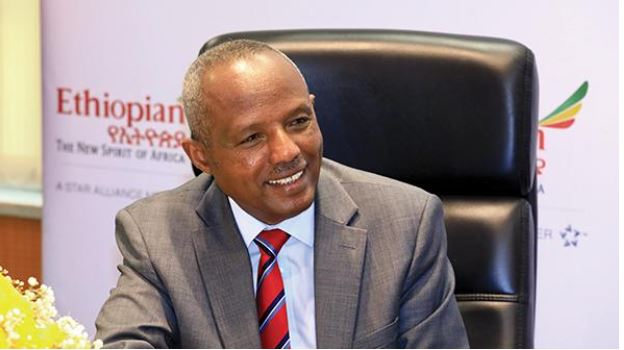In an exclusive interview with Nigerian journalists in Addis Ababa, Ethiopian Airlines’ Group Chief Executive Officer, Mr. Mesfin Tasew, emphasized the importance of transparent declaration for passengers transiting through the Bole International Airport. The CEO debunked some reports alleging ill treatment of Nigerian passengers and shed light on the airline’s commitment to ensuring a seamless travel experience.
Tasew clarified that while security checks are a standard practice for transiting passengers, Ethiopian Airlines does not engage in maltreatment of its passengers. He highlighted the necessity for passengers carrying significant amounts of currency or valuables to declare them with customs upon arrival in the country.
According to Tasew, the airline makes repeated announcements on board to encourage passengers to declare amounts exceeding $10,000 or equivalent, as well as substantial quantities of gold, ensuring compliance with both national regulations and international security practices. Tasew explained that the declaration process is a straightforward procedure designed to prevent illegal activities, such as smuggling or unauthorized possession of large sums of money.
With 70% of Ethiopian Airlines’ passengers transiting through Addis Ababa, Tasew emphasized the efficiency of the airport’s operations, where transit times can vary from as short as 20 minutes to a few hours. He reiterated that security screenings and rechecks are standard international practices, ensuring the safety and compliance of passengers with both national and international regulations.
The CEO further clarified that passengers found carrying prohibited items, such as drugs or weapons, would be subject to appropriate legal actions, underscoring the airline’s commitment to maintaining the highest standards of safety and security. Tasew expressed the airline’s dedication to providing a seamless experience for its passengers, urging travelers to adhere to the declaration process for valuables to facilitate a trouble-free transit through Addis Ababa.
He said: ““70% of our passengers are transit through Addis Ababa. It’s only 30% that come in and go out. 70% come from cities where we fly and go to cities where we fly, transiting through Addis Ababa. And the transit time in Addis Ababa varies from 20 minutes. Some passengers connect in 20 minutes.
They just disembark one aircraft and board the next aircraft in 20 minutes. “Up to a few hours, three hours, four hours. Sometimes it may go up to four hours. But most are within a range of one hour and two hours. Like any other airport, as passengers transit through the airport, they undergo security screening. You have to pass through security. If I travel to Frankfurt and want to go to London, then I have to pass through security screening. It is international practice.
In that process there are certain checks that have to be done, primarily security related things. When you reach the boarding gate, your passport is rechecked again, whether you have the visa, or a valid traveling document. And that is done by the national security of the country. “Sometimes they find people who are not in compliance with both the national regulation and international security practices. Let me give you an example. Some passengers are found carrying drug. If they are found carrying drugs, definitely they are not allowed to continue their flight. The security people will take them under custody. If they are found carrying weapons without permission, they do the same thing until they investigate and see that it is an approved weapon and so on. When some passengers are found to be non-compliant, they can go under the custody of police.
“The second problem that we witness is that some people carry a lot of money on paper, a lot of dollars, or valuables like gold in large size or dollars for example in tens of thousands, hundreds of thousands in their bag. If they are transiting without coming to Addis, the security people don’t touch them if they stay at the Airport. They can carry the money because it’s their money, they are not coming into the country. “However, for some reason if they want to pass a day or a night to get their connection and they have to come out to this hotel in the city, the national regulation says that all passengers carrying over 10, 000 dollars or equivalent or gold beyond the normal ornament, have to declare it to customs on arrival.
“You have to tell them the amount you are carrying, you show it to them and you sign on a piece of paper, they give you the paper. And the next morning when you go out, as you pass through the X-ray, there are custom people there. If they see it, they ask you, do you have permit to carry this money? If you show that paper, nothing will happen. You are free to carry out your money, even if it is a million dollars. “All they are asking is that you declare it. If you do not declare, they assume that the passenger met with some Ethiopians who wants to take out hard currency from the country. So, they assume that if you didn’t declare it, when you come in, then it means it’s not your money.”







